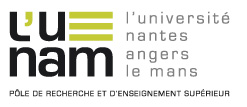Early detection of acute graft‐versus‐host disease by wireless capsule endoscopy and probe‐based confocal laser endomicroscopy: results of a pilot study
Résumé
Objective: Acute gastrointestinal graft-versus-host disease (GI-GVHD) is usually diagnosed using endoscopic examinations and biopsies for conventional histology. The aim of this pilot study was to determine whether mini-invasive techniques such as probe-based confocal laser endomicroscopy (pCLE) combined with wireless capsule endoscopy (WCE) could detect early lesions of GI-GVHD prior to symptoms.
Design: Fifteen patients undergoing allogeneic haematopoietic stem cell transplantation (allo-HSCT) were prospectively examined with a small bowel WCE, duodenal and colorectal pCLE, and standard biopsies. Per study protocol, all these examinations were scheduled between day 21 and day 28 after allo-HSCT, independently of the presence or absence of digestive symptoms.
Results: During follow up, eight patients developed acute GI-GVHD. Sensitivity of WCE, pCLE, and histology were 50, 87.5, and 50%, respectively. Specificity of WCE, pCLE, and histology were 80, 71.5, and 80%, respectively. We showed a positive correlation between the Glücksberg scoring system and WCE (rho = 0.543, p = 0.036) and pCLE (rho = 0.727, p = 0.002) but not with standard histology (rho = 0.481, p = 0.069).
Conclusions: The results from this pilot study suggest that novel methods such as pCLE and WCE could be part of a mini-invasive algorithm for early detection of GI-GVHD.
| Origine | Fichiers éditeurs autorisés sur une archive ouverte |
|---|---|
| licence |



